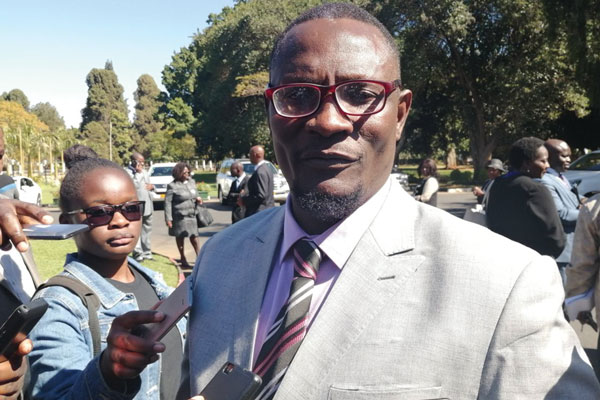
INTERVIEW:Nunurai Jena
THE Zimbabwe Anti-Corruption Commission (ZACC) has refuted allegations that it was failing to effectively carry out its mandate, with citizens accusing the anti-graft body of catching and releasing corrupt bigwigs just to woodwink the nation into believing they were on a serious mission to weed out corrupt elements. Towards the end of last year, the Zacc secretariat held countrywide meetings consulting on its proposed anti-corruption national strategy. NewsDay (ND) correspondent Nunurai Jena caught up with commissioner Gabriel Chaibva (GC) who said the “catch and release” tag now associated with Zacc was not part of their strategy and they need prosecuting powers to effectively discharge their duties without fear or favour. Hear him speak;
GC: This is one of many meetings we are doing in all provinces with stakeholders to formulate an anti-corruption national strategy to effectively use in order to combat rampant corruption bedevilling all our systems. We are meeting stakeholders to try to build a national strategy. We are asking stakeholders how corruption is being done and what Zacc can do to fight corruption. They are sharing with us the various forms of corruption in their areas that shall inform our investigations.
ND: But why the strategy now? Was this not what you should have first done the very day you got into office?
GC: It’s never too late. Remember we started work in July this year. It’s better late than never. We are just trying to put a better foundation.
ND: Is it not that you have blundered so much in a very short space of time with these “catch and release cases” that you thought of going back to the basics?
GC: Like what I have said, we made our mistakes and that realisation is the first step towards doing the right thing.
ND: Let’s come to this catch and release tag that you now have been given by citizens; are people justified?
- Chamisa under fire over US$120K donation
- Mavhunga puts DeMbare into Chibuku quarterfinals
- Pension funds bet on Cabora Bassa oilfields
- Councils defy govt fire tender directive
Keep Reading
GC: We are not a catch and release organisation like what other people want to call us. Most people don’t really know how we work. We investigate cases and hand them over to the prosecuting authority who in turn takes the accused person to court and I think that’s where the problem lies. We as Zacc should be given prosecuting powers because it’s problematic to investigate a case and then hand it over to another department to finish off. Sometimes things will not be done according to the book. I’m not defending that because it gives an impression that we are a “catch and release organisation” but the thing is the law stipulates that everyone is innocent until proven guilty after being tried by the courts in an open trial. The requirement of the burden of proof should be beyond any shadows of doubt should be relaxed as this is a loophole since most people are escaping through that as we are not allowed to use circumstantial evidence. Sometimes we come to situations whereby you can see that someone was heavily involved, but we fail to get nailing evidence despite substantial circumstantial evidence.
ND: What are some of the challenges you have faced?
GC: After investigating an issue and being satisfied that there is a prima facie case, we hand over the case to the prosecuting authority who, in turn, take the accused to court, but in most cases we are told that the accused has no case to answer and you don’t know how that would have happened. Too many cooks spoil the broth.
ND: What issues are dominating your meetings?
GC: Politically-induced corruption within the civil service and the issue of gifts have dominated our meetings. People have a feeling that gifts are being abused to cover up corruption in high offices.
ND: Are you satisfied with the government support?
GC: There is political will and we have been assured by His Excellency (President Emmerson Mnangagwa) and the Constitution that there are no sacred cows in this game. In terms of resources, government is doing all it can to fund us. Remember we were allocated $6 million in January and along the way around July we got $36 million and now in the recently announced budget we were allocated $72m; although it’s not enough, but the will is there.
ND: Any new plans for 2020?
GC: Yes, we intend to have regional offices and Zacc’s desire is to have offices in all the provinces, districts, wards and villages for speed conclusion of cases. We have realised that some cases are taking long to come to our attention because of distance.
ND: And what is the way forward?
GC: There is need for Zacc to be given prosecuting powers to effectively discharge its duties diligently. In neighbouring countries, such organisations like ours have prosecuting powers and handing over cases to another department can undo our good work. The law should be amended to cater for circumstantial evidence and there is need for speedy conclusion of cases.











